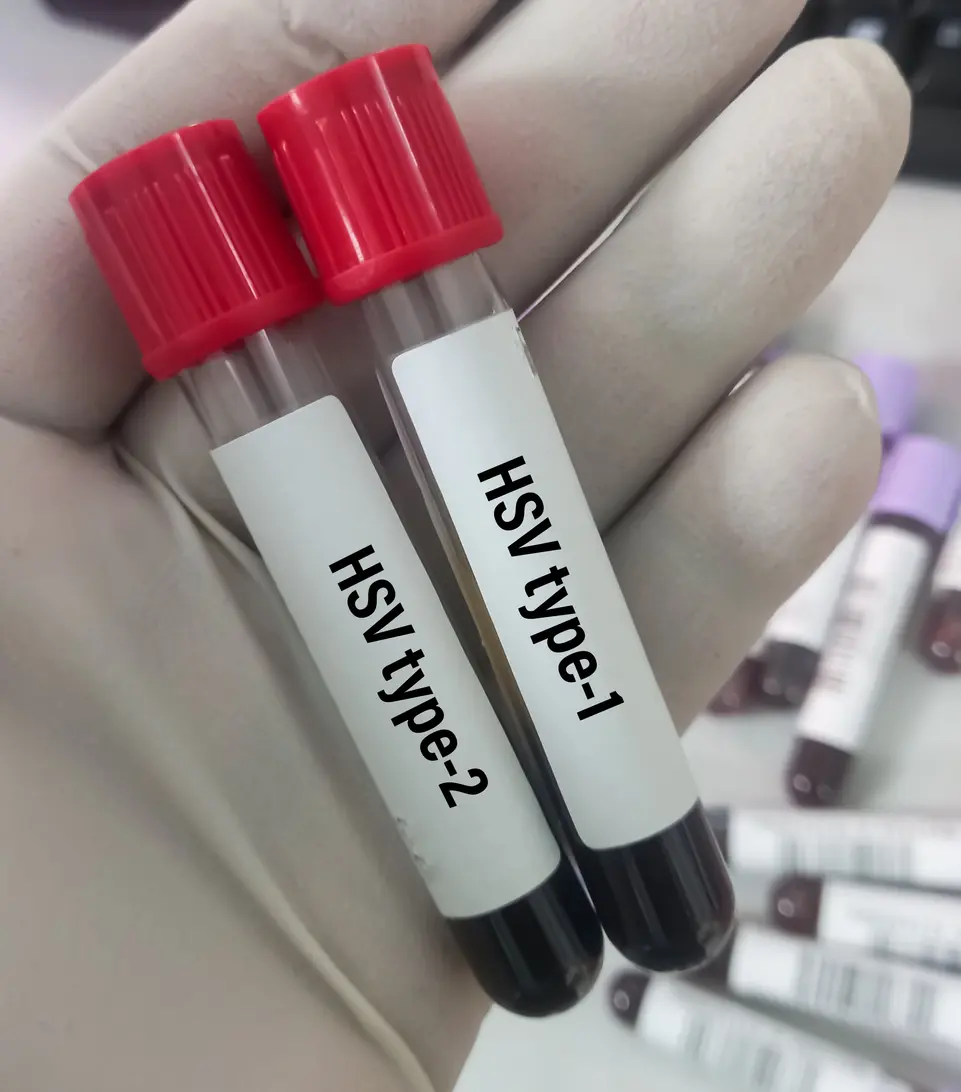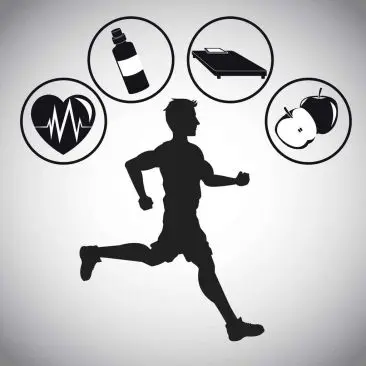How Many People Have HSV-1 And HSV-2?
Oral herpes (HSV-1) and genital herpes (HSV-2) are caused by the herpes simplex virus (HSV). Is herpes common?
This article provides an overview of the types of herpes worldwide, along with information on how herpes affects overall health. Frequently asked questions and common myths about herpes are also addressed.
What Is Herpes Simplex Virus (HSV)?
The most common type of herpes virus is herpes simplex. Globally, 3.7 billion people are affected by it. Many people contract herpes simplex without knowing it, which is highly contagious.
An infected person's saliva, semen, or vaginal secretions can spread herpes to others.
HSV-1: Symptoms, Causes & Prevalence
It is caused by herpes simplex virus-1, also known as HSV-1. Sexual and non-sexual contact can spread it.
The most common herpes virus is HSV-1. It is often contracted during childhood by parents or relatives of those with the disease.
It may take many years for HSV-1 to become symptomatic. Symptoms of infection may never appear in some people.
The prevalence of HSV-1 in American adults exceeds half. In about 30% of cases of oral herpes, cold sores recur.
Oral herpes symptoms include:
- Painful cold sores or blisters in or around the mouth
- Tingling, itching, or other sensations 1-3 days before sores appear
- Headaches and body aches
- Fever
- Swollen lymph nodes
- Fatigue
HSV-2: Symptoms, Causes & Prevalence
The HSV-2 virus causes genital herpes. Sexual contact transmits the disease. The virus is the second most common type of herpes.
You can have HSV-2 without showing any symptoms or signs. People who have asymptomatic genital herpes can spread the virus to others. The symptoms of genital herpes may not appear for 2-12 days after exposure. The prevalence of HSV-2 in Americans under 50 is around 11%.
Genital Herpes Symptoms Include:
- Sores, blisters, or lesions in or around the genitals, anus, or inner thighs
- Tingling, itching, or sensations 1-3 days before sores appear
- Fever
- Swollen lymph nodes
- Fatigue
- Body aches and headaches
HSV-2 can sometimes cause mouth sores, though this is less common.
Global Prevalence of HSV-1 and HSV-2
Around the world, 3.7 billion people under the age of 50 have HSV-1, which accounts for approximately 67% of the population. 13% of the same population, or 491 million people, are infected with HSV-2.
Childhood is the most common time when HSV-1 is transmitted non-sexually. Females are more likely to contract HSV-2 through vaginal sexual contact since sexual transmission is more common during vaginal contact. Adolescence is a time when the majority of new cases of herpes simplex occur.
| Virus Type | Estimated Global Cases | Percentage of Population <50 | Main Transmission | Typical Site of Infection |
|---|---|---|---|---|
| HSV-1 | 3.7 billion | 67%Cases, Percentage | Saliva, kissing, non-sexual contact | Mouth, lips (oral herpes) |
| HSV-2 | 491 million | 13% | Sexual contact | Genitals, anus (genital herpes) |
Health Impacts of HSV-1 and HSV-2
The majority of people who have herpes simplex are unaware they have it. Outbreaks, however, can have a negative impact on people when they occur.
Even though cold sores are often caused by a virus contracted through non-sexual contact, herpes simplex is stigmatised as a sexually transmitted infection.
A recurrent episode of herpes simplex, whether HSV-1 or HSV-2, may negatively impact a person's quality of life, sexual relationships, and overall health. Neonatal herpes could also have negative health implications.
Infants can contract herpes simplex during birth, although it is less common. Approximately 10 out of every 100,000 births are affected by neonatal herpes. It can result in permanent neurological damage or death for the infant if it occurs.
The Link Between Herpes and HIV Risk
Even though genital herpes does not directly cause HIV infection, HSV-2 has been linked to an increased risk of HIV infection.
Almost 30% of new HIV infections from sexual contact could be associated with HSV-2, according to a World Health Organization (WHO) study. People with HSV-2 may have a three times greater likelihood of contracting HIV if exposed to it.
Due to herpes simplex, skin breaks and inflammation can allow HIV to enter and cause infection. As well as this, females have an increased biological susceptibility to both genital herpes and HIV transmitted via sexual contact.
Common Myths and Misconceptions About Herpes
Herpes is a subject of many myths, including what it is, how it spreads, and its effects on those who have it. It is possible to reduce the stigma associated with herpes by understanding its facts.
Giving Birth Always Transmits The Virus To Babies
The transmission of HSV-1 via birth is highly unlikely. A pregnant person who acquires HSV-2 for the first time during pregnancy may be more likely to transmit genital herpes during birth.
People cannot Spread Herpes Unless They Have Sores Or Blisters.
Many people have asymptomatic herpes simplex infections. Saliva, semen, and vaginal secretions can still transmit HSV-1 or HSV-2 even without active cold sores or blisters.
A platonic kiss, such as one between a parent and a child, or a kiss that is not open-mouthed and doesn't involve the tongue, can cause this. Especially with HSV-1, most herpes infections may be transmitted without symptoms.
Herpes Can Be Transmitted Through The Blood
There is no blood-borne transmission of herpes simplex virus. Transmission occurs through the fluids from cold sores or herpes blisters, through the saliva of infected individuals, or via sexual contact.
There’s Not Cure or Vaccination For Herpes
Herpes simplex virus cannot be cured, and a vaccine to prevent it does not yet exist.
Preventing HSV-1 and HSV-2 Transmissio
Herpes simplex transmission cannot always be prevented. It is common for contagious individuals to exhibit no signs or symptoms of infection. HSV-1 can be transmitted via everyday, non-sexual contact, but it is more transmissible than HSV-2.
HSV-1 (oral herpes) is commonly contracted during childhood and often goes unnoticed. Please avoid contact with people with cold sores, and do not kiss or share anything that may come in contact with their saliva to reduce your chances of getting oral herpes.
Direct contact with an infected person is considered the most common method of transmitting HSV-1. Herpes blister outbreaks and healing sores are contagious for a few days before they occur.
Oral herpes typically lasts for 1-2 weeks, while genital herpes typically lasts for 10-20 days.
The following things cannot cause oral or genital herpes:
- Blood
- Coughing or sneezing
- Holding hands or hugging
- Toilet seat contact
It is possible to spread herpes simplex through kissing, oral sex, or sharing objects that come into contact with the sores or saliva of someone with an active outbreak, such as:
- Lip balm or lipstick
- Razors
- Cosmetic products
Herpes simplex is standard.
Genital herpes cannot be completely avoided, but safe sex can help you avoid it.
- If you know someone who has oral herpes or genital herpes, do not have sexual contact with them.
- Even if you don't have any symptoms of genital herpes, use condoms or dental dams whenever you engage in sexual contact.
- During an active herpes outbreak, don't kiss or share utensils.
How Mobi Doctor Can Help
Mobi Doctor offers online urgent care. In minutes, you can check your symptoms, research conditions and treatments, and text a healthcare provider if needed.






